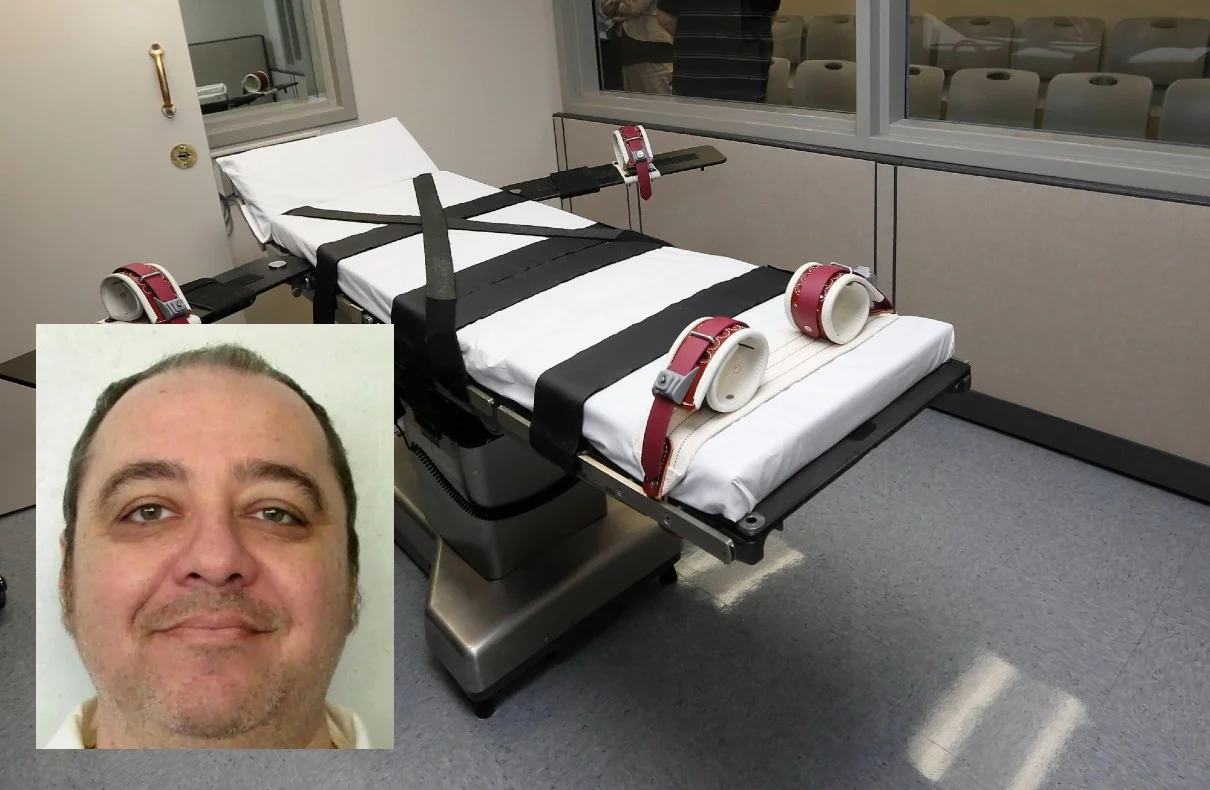
In Alabama, a new method of execution is being introduced – nitrogen gas. This groundbreaking approach has garnered attention and raised concerns about its potential implications. In this article, we will explore the details of nitrogen hypoxia as an execution method, its history, the state’s plan for implementation, criticisms surrounding it, and the legal challenges it faces.
Nitrogen hypoxia involves causing death by depriving the individual of the oxygen necessary for bodily functions through the inhalation of pure nitrogen gas. The theory behind this method is that replacing breathable air with nitrogen will induce unconsciousness and eventually lead to death. Nitrogen gas, which constitutes 78% of the air we breathe, is normally harmless when combined with the appropriate levels of oxygen.
Alabama’s decision to utilize nitrogen gas as an execution method marks a significant development since the introduction of lethal injection in 1982. Kenneth Eugene Smith, a death row inmate who survived a previous attempted execution by lethal injection in 2022, is scheduled to be put to death using nitrogen hypoxia. If carried out, this will be the first instance of nitrogen gas execution in the United States.
Europa: A Moon of Jupiter and Its Potential Habitability
Despite nitrogen hypoxia being authorized for use in three states – Alabama, Mississippi, and Oklahoma – no executions have been performed using this method to date. The lack of prior implementation raises concerns and has led to comparisons of this untested execution method to human experimentation. Critics argue that the use of nitrogen gas as a means of execution involves significant ethical and legal considerations.
Alabama’s proposed execution process involves placing a “NIOSH-approved Type-C full facepiece supplied air respirator” mask over the inmate’s face after being strapped to the gurney in the execution chamber. This mask, commonly used in industrial settings to provide life-preserving oxygen, will be used to replace breathable air with nitrogen. The nitrogen gas will be administered for a minimum of fifteen minutes or until a flatline indication on the EKG, whichever is longer.
While the state protocol details the execution process, there are concerns regarding the safety of the procedure. Smith’s attorneys argue that the mask may not be airtight, potentially allowing oxygen to seep in and prolong the execution, leading to a persistent vegetative state instead of a swift death. Medical experts have also raised concerns about the potential for nausea and the risk of choking on vomit due to the low-oxygen environment created by nitrogen hypoxia.
Smith’s impending execution has faced significant backlash and criticisms. His attorneys contend that Alabama is using him as a “test subject” for an experimental execution method. They argue that the proposed procedures violate the prohibition against cruel and unusual punishment. Additionally, they claim that scheduling the execution while Smith’s appeals are pending violates his due process rights. Experts appointed by the United Nations Human Rights Council have cautioned that the execution method may violate the prohibition on torture and other forms of cruel, inhuman, or degrading punishment.
Moreover, the American Veterinary Medical Association, in its euthanasia guidelines, states that nitrogen hypoxia can be an acceptable method for euthanizing pigs under certain conditions. However, the association does not endorse its use for other mammals due to the distressing nature of the anoxic environment it creates.
Astronomers Unveil New Tiny Moons Orbiting Neptune and Uranus
The legality of Smith’s execution is currently being challenged in the courts. Smith’s attorneys have filed appeals, arguing that the state’s proposed procedures violate his constitutional rights. They have also raised concerns about the interference of the face mask with Smith’s ability to pray during his final moments. The 11th U.S. Circuit Court of Appeals is set to hear arguments regarding the execution, and the case may ultimately be brought before the U.S. Supreme Court.
Given the implications and potential precedents involved, the outcome of these legal challenges will have far-reaching consequences for the future of the nitrogen gas execution method. If the execution proceeds as planned, other states may consider adopting this alternative method in their own capital punishment practices. Conversely, if the court blocks the execution or if it is botched, the pursuit of nitrogen gas as an execution method may face setbacks or even come to a halt.
